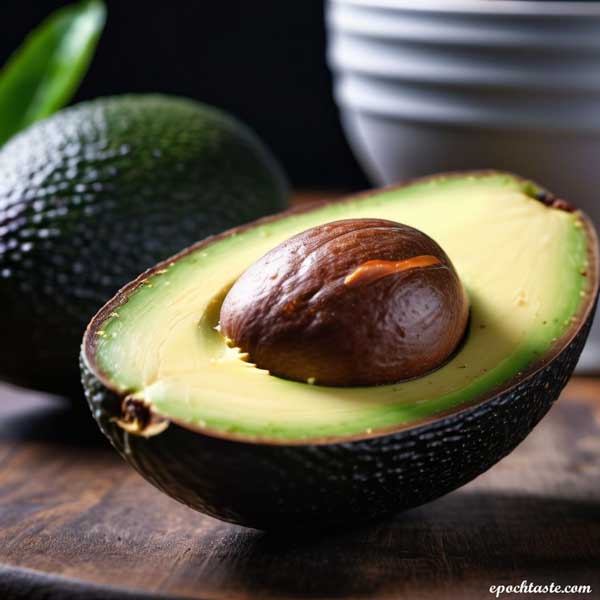Avocado, the beloved green fruit, has soared in popularity over the years due to its creamy texture and delicious taste. It’s often considered a healthy addition to a balanced diet, but one question that frequently arises is, “How many calories are in a large avocado?” In this comprehensive guide, we will delve into the world of large avocado calories, covering everything from the nutritional content to debunking myths surrounding this versatile fruit.

Chapter 1: Understanding Large Avocado Calories
Large Avocado Calories (100g)
Let’s start by dissecting the nutritional content of a large avocado. If you’re watching your calorie intake, knowing the calories in a 100g serving is essential. A 100g serving of a large avocado typically contains approximately 160-190 calories. This calorie count can vary slightly depending on factors like the avocado’s ripeness and variety.
Extra Large Avocado Calories
When it comes to avocados, size matters. Extra large avocados can weigh up to 300 grams or more, and as you’d expect, their calorie content is higher than that of a standard large avocado. An extra large avocado can contain anywhere from 240 to 285 calories, making it a calorie-dense choice.
Large Avocado Calories (1 Cup)
If you prefer to measure your avocado consumption in cups rather than grams, you might be wondering how many calories are in a cup of diced avocado. On average, one cup of diced large avocado contains approximately 234-280 calories. Again, these numbers can vary slightly based on factors like ripeness and preparation methods.
1 Small Avocado Calories
What if you have a small avocado on hand? A small avocado typically contains around 160-190 calories. Although they are smaller in size, their calorie content is comparable to that of a large avocado, making them a nutritious option for those watching their calorie intake.
Calories in 1/2 Avocado
Many people consume half an avocado at a time, especially when adding it to salads or sandwiches. Half of a large avocado contains approximately 80-95 calories. This portion size is convenient for managing calorie intake while enjoying the nutritional benefits of avocados.
Medium Size Avocado Calories
Medium-sized avocados are another common choice. They usually contain around 128-152 calories. If you prefer a smaller portion or are looking to incorporate avocados into your meals without a calorie overload, medium-sized avocados are an excellent option.

Chapter 2: The Nutritional Benefits of Avocado
Now that we’ve established the calorie content of large avocados in various forms, let’s explore why they are considered a nutritional powerhouse.
Healthy Fats
One of the key reasons avocados are highly regarded is their healthy fat content. They are rich in monounsaturated fats, which are heart-healthy and can help reduce bad cholesterol levels. These fats also play a role in nutrient absorption, particularly fat-soluble vitamins like A, D, E, and K.
Fiber
Avocados are a fantastic source of dietary fiber. Fiber aids in digestion, helps maintain a feeling of fullness, and can contribute to weight management. It also supports digestive health by preventing constipation and promoting regular bowel movements.
Essential Nutrients
Large avocados are packed with essential nutrients, including potassium, vitamin K, vitamin E, and folate. Potassium is crucial for maintaining healthy blood pressure, while vitamin K supports bone health and wound healing. Vitamin E is a powerful antioxidant, and folate is essential for pregnant women as it aids in fetal development.
Antioxidants
In addition to vitamin E, avocados contain other antioxidants that help combat oxidative stress and reduce the risk of chronic diseases. These antioxidants include lutein and zeaxanthin, which are beneficial for eye health.

Chapter 3: Debunking Myths – Is Avocado Bad for You?
Now that we’ve covered the positive aspects of avocado nutrition, it’s time to address some common myths and misconceptions about this fruit.
Myth 1: Avocado Is Too High in Calories
While it’s true that avocados are calorie-dense, they offer a wealth of nutrients that make them a valuable addition to your diet. The healthy fats in avocados can actually aid in weight management by promoting satiety and reducing unhealthy snacking.
Myth 2: Avocado Is Bad for Your Heart
Some people worry that the high fat content in avocados might negatively impact heart health. However, the monounsaturated fats in avocados are heart-healthy and can help lower the risk of heart disease when consumed in moderation.
Myth 3: Avocado Leads to Weight Gain
Avocado can be part of a balanced diet and is unlikely to cause weight gain when consumed in appropriate portions. Its fiber and healthy fats can help control appetite, making it easier to maintain or lose weight.
Myth 4: Avocado Is Unhealthy Due to Its Calorie Content
While avocados are calorie-dense, they are far from unhealthy. The calories in avocados come from nutrient-dense sources, providing your body with essential vitamins, minerals, and antioxidants.

Chapter 4: Making the Most of Avocado Calories
Now that we’ve debunked the myths and understood the nutritional benefits of avocados, let’s explore some tips on how to make the most of avocado calories.
Portion Control
As with any food, portion control is key. Enjoy avocados in moderation to fit your calorie goals. Half an avocado or a reasonable amount of diced avocado can add creaminess and flavor to your meals without excess calories.
Balance Your Diet
Incorporate avocados into a balanced diet rich in fruits, vegetables, lean proteins, and whole grains. This approach ensures you receive a wide range of nutrients and minimizes the risk of overindulgence.
Varied Preparation Methods
Experiment with different ways to prepare avocados, from guacamole to avocado toast and salads. Variety keeps meals interesting and allows you to enjoy avocados in various culinary contexts.
Pair with Nutrient-Rich Foods
Pair avocados with foods that complement their nutritional profile. For example, adding avocado slices to a salad with leafy greens and tomatoes enhances the absorption of fat-soluble vitamins.
Chapter 5: Conclusion – Avocado, A Nutrient-Packed Delight
In conclusion, large avocados, while calorie-dense, offer numerous health benefits and should not be feared. Their rich nutritional content, including healthy fats, fiber, and essential nutrients, makes them a valuable addition to a balanced diet. By understanding the calorie content of different avocado portions and debunking myths surrounding their consumption, you can enjoy the delicious and nutritious benefits of avocados without hesitation. So, go ahead, savor that creamy goodness and reap the rewards of large avocado calories.



